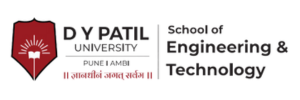Program Overview
School of Engineering & Technology is engaged creating the future leaders in engineering, science and technology. Programmes are designed and delivered to build a foundation in engineering principles. Students are encouraged to collaborate across disciplines to apply skills to real-world problems. At campus, student centric learning culture provides opportunities for learning and practicing. Engineering education is designed to understand 'how' things work and "find' practical solutions with the use of scientific processes and application of theories. Students are made ready to play a role and perform functions as an engineer that is to design, evaluate, develop, test, modify, install, inspect and maintain a wide variety of products and systems.
- Duration: 3 years
Fee Structure
Annual Fee: ₹2,00,000/-
per year
Application Fee: INR 800/-
Eligibility Criteria
-
The candidate must be an Indian National.Passed Minimum THREE years/TWO years (Lateral Entry) Diploma examination with at least 45% marks (40% marks in case of candidates belonging to reserved category) in ANY branch of Engineering and Technology. OR 2. Passed B.Sc. Degree from a recognized University as defined by UGC, with at least 45% marks (40% marks in case of candidates belonging to reserved category) and passed 10+2 examination with Mathematics as a subject. OR 2. Passed D.Voc. Stream in the same or allied sector. (The Universities will offer suitable bridge courses such as Mathematics, Physics, Engineering drawing, etc., for the students coming from diverse backgrounds to achieve desired learning outcomes of the programme)Program Highlights
Career
Career Prospects:
Graduates in Computer Engineering from D.Y. Patil University embark on varied career paths, equipped to tackle the demands of a rapidly evolving tech industry. With the sector's digital transformation, roles such as Software Developer, Network Analyst, AI Specialist, and many more await, promising dynamic and progressive professional journeys in both established and pioneering technological arenas.
Career Paths:
-
Software Developer
Pursuing computer engineering offers multiple career options, one of the most prominent being a software developer. In this role, you will design and develop software programs for computers, mobile devices, and other electronic devices. Your responsibility includes creating portable, user-friendly, and technologically advanced software programs.
-
Database Administrator:
Graduating from top institutions like D.Y. Patil University, Pune, which is recognized as one of the top 10 computer engineering colleges in Pune, provides exposure to various sectors and career advancement opportunities. Another opportunity is becoming a database administrator, where you will master the skills of supervising and monitoring software development. You will act as a supervisor accountable for the quality and performance of software databases.
-
Computer Hardware Engineer:
These experts specialize in developing and designing computer hardware programs, such as circuit boards, memory devices, and routers. As a hardware engineer, you must demonstrate both technical and creative expertise.
-
Computer Systems Analyst:
A computer systems analyst evaluates the entire computer system. Your role will involve conducting in-depth research and analysis and recommending necessary changes to enhance system effectiveness and user-friendliness. Major corporations like Dell and Microsoft hire computer analysts to ensure system efficiency and implement required modifications.
-
Computer Network Architect:
Professionals in this field design and develop networking and data communication systems. As a network analyst, your responsibilities will include maintaining data systems related to local area networks (LANs), wide-area networks (WANs), extranets, and intranets. Essentially, the responsibility for developing data communications lies with a computer network analyst. You can easily pursue a career in this field by graduating from a college like D.Y. Patil University, Pune, renowned as one of the best engineering colleges in Pune for computer science.
-
Information Security Analyst:
In every industry and organization, there is a demand for continued security and protection from unethical hackers. As one of the most significant job opportunities in computer engineering, this role offers career advancement and exceptional job roles.
-
Computer Programmer:
This is an ideal career option for computer enthusiasts. As a programmer, you will showcase your ability to develop computer software programs that are portable and accessible, reaching millions worldwide.
Syllabus
- Engineering Mathematics-I
- Engineering Physics/ Engineering Chemistry
- Engineering Graphics
- Basic Electrical Engineering
- Basic Workshop Practices - I
- Business Analytics
- Engineering Mathematics-II
- Engineering Physics/Engineering Chemistry
- Programming with C
- Fundamentals of Computer Science and Engineering
- Electronic Devices and Circuit
- Engineering Physics/Engineering Chemistry Lab
- Electronic Devices and Circuit Lab
- Programming with C Lab
- Engineering Mechanics Lab
- Sports and Yoga
- Statistics and Probability-I
- Theory of Computation
- Computer Organization and Architecture
- Data Structures
- Programming with Python
- Data Structures Lab
- Programming with Python Lab
- Computer Workshop-I (Advanced Excel & Office Toolkit, Hardware Components) Lab
- Project Based Learning-I
- Indian Constitution
- Statistics and Probability-II
- Operating System
- Artificial Intelligence
- Computer Networks
- Database Management Systems
- Database Management Systems Lab
- Computer Networks Lab
- Computer Workshop-II (OOPM Using Java) Lab
- Digital and Social Media Marketing
- Project Based Learning-II
- Software Engineering
- Machine Learning
- Advanced Data Structure
- Elective-I
- Machine Learning Lab
- Advanced Data Structure Lab
- Computer Workshop-III (Advanced Tools) Lab
- Design Thinking
- Entrepreneurship and Start-ups
- Environmental Sciences
- Deep Learning
- Data Analytics and Visualization
- System Programming
- Compiler Construction
- Elective-II
- Deep Learning Lab
- Data Analytics and Visualization Lab
- System Programming Lab
- Compiler Construction Lab
- Introduction to Psychology
- Blockchain Technology
- Cloud Computing
- Elective-III
- Elective-IV
- Blockchain Technology Lab
- Cloud Computing Lab
- Laboratory Practice
- Internship
- Research Methodology
- Open Elective
- Project
